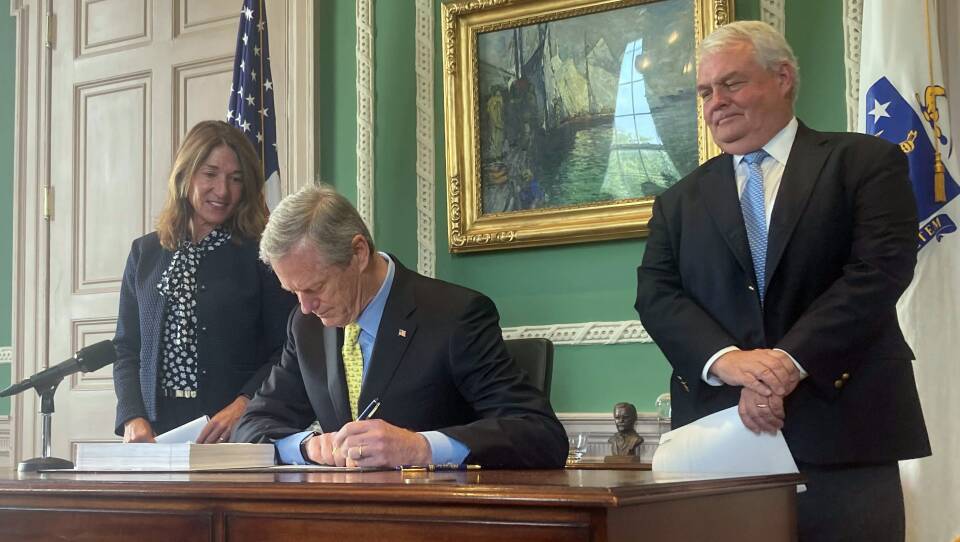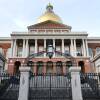Thanks to an obscure law from the 1980s, Massachusetts taxpayers are poised to get perhaps more than $2.5 billion back from the state, Gov. Charlie Baker said Thursday as he signed the state budget.
“Based on the performance of our economy and our tax collections for the last fiscal year, we do believe that there’ll be a significant return to the taxpayers according to existing state law sometime later this year,” Baker said.
Baker’s administration and finance secretary, Michael Heffernan, said the law — which limits allowable growth in state tax revenues to the same level as growth in wages and salaries — had only been triggered once before, in 1987. That year, Bay Staters were able to receive a piece of the excess $29 million as a tax credit.
The determination on whether revenues exceed the allowable tax cap is made annually in September by the state auditor , so the exact amount that would be available is unclear.
“We think the number’s probably north of $2.5 billion that would be in tax rebates to the people of Massachusetts,” Baker said.
Heffernan said his office is “looking at what’s the quickest and most efficient way to get that money back to the taxpayer,” including whether it’d be a credit or a rebate.
Separately, state lawmakers are trying to work out a deal on a tax relief package that includes one-time $250 rebates for middle-income taxpayers, changes to the state’s estate tax and breaks for renters, seniors and caregivers. They have until Sunday to get a final bill to Baker.
Reflecting the surging tax collections over the past year, the budget Baker signed increases spending around 10 percent over the $47.6 billion budget he approved last year. The final budget also anticipates a $1.5 billion deposit into the state’s “rainy day fund,” bringing the account’s balance to a new high of $8.4 billion.
Other key budget details include:
- Baker is reviving his push to make it easier to detain suspects deemed a danger to the public, tying it to budget language that would make phone calls free at prisons and jails. The pretrial detention bill is a top priority for the outgoing governor, who’s touted it as a way to protect survivors of domestic and sexual violence, but the Democrats who lead the Judicary Committee shelved it over concerns from civil-rights advocates. Baker sent back the free phone calls piece of the budget with an amendment tacking on some provisions of his bill, essentially telling lawmakers that he’d be willing to eliminate the call charges if they’ll go along with his ideas around detention and dangerousness hearings.
- Of the almost $53 billion budget, Baker vetoed only $475,000 in spending — $200,000 to pilot a child car seat recycling program, $100,000 for the New England Wildlife Center in Weymouth, a pair of $25,000 earmarks for Westford Community Television and Plymouth Area Community Access Television and $125,000 for the Disability Law Center to monitor services at Bridgewater State Hospital.
- The final budget includes $110 million to pilot a free school meal program for students in K-12 schools. It also boosts state aid to local school districts to nearly $6 billion, a roughly 9 percent increase over last year's budget.
- Baker said the budget incorporates $315 million in support of the tax relief plans the Legislature is trying to finalize. He called those tax breaks “eminently affordable” within the context of the budget. The House and Senate are also still negotiating different versions of bills that would legalize sports betting in Massachusetts, and it’s not clear if they’ll manage to agree by the Sunday deadline. “There are a lot of people in the Legislature who think this is a worthwhile thing to do,” Baker said of sports betting. “Even some of the folks who aren’t wild about betting and gambling generally understand that it’s going on already and around the rest of the country. I certainly hope it makes it to the desk. I do know that there are significant conversations going on between the branches about this.”







